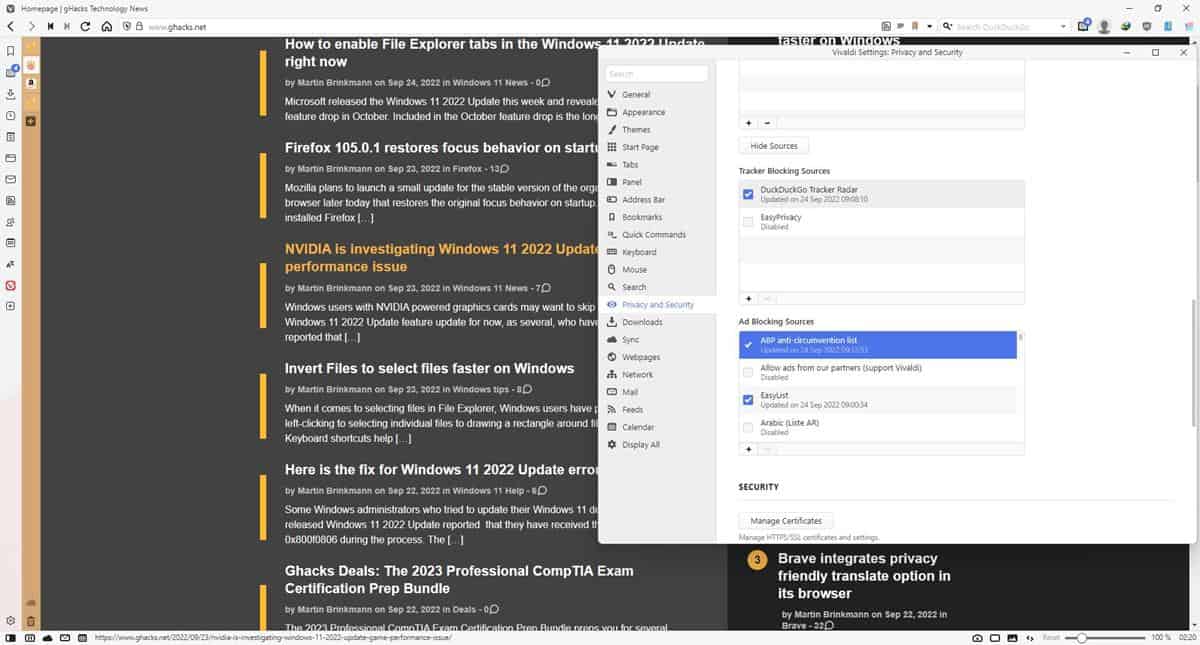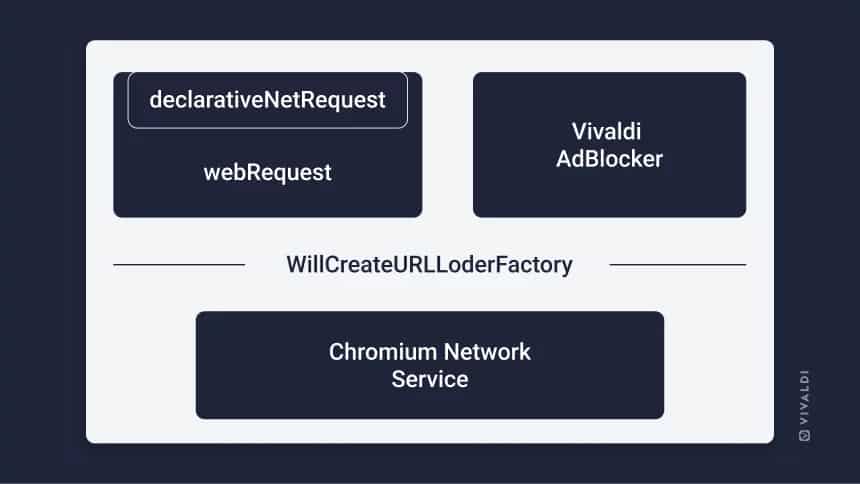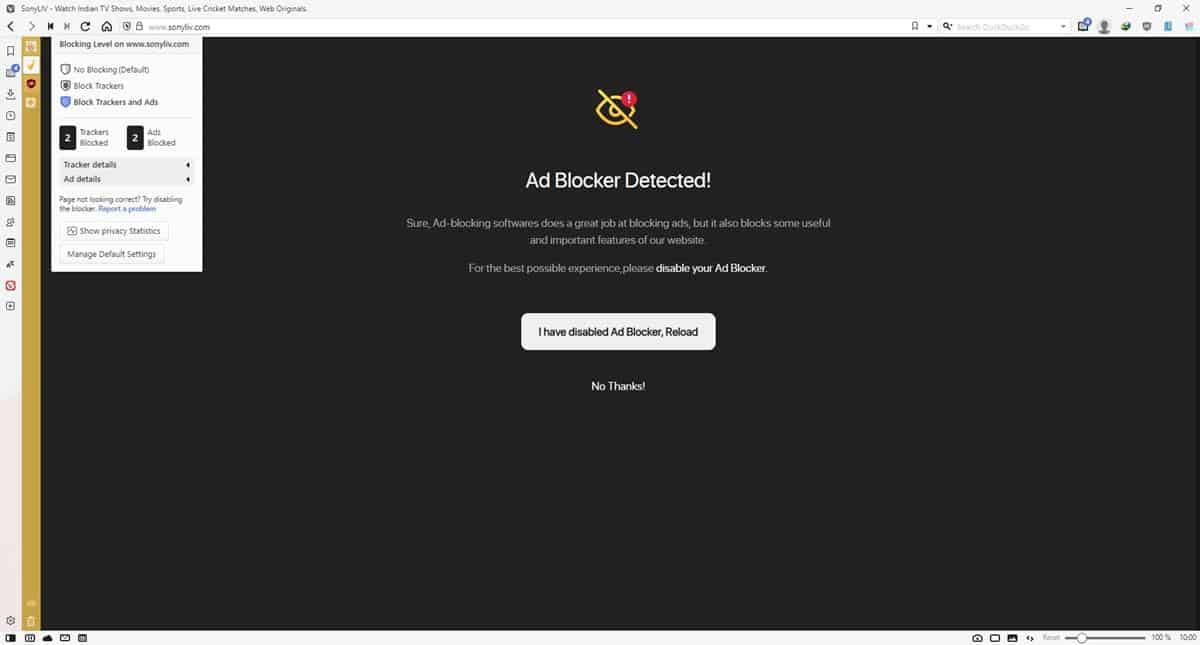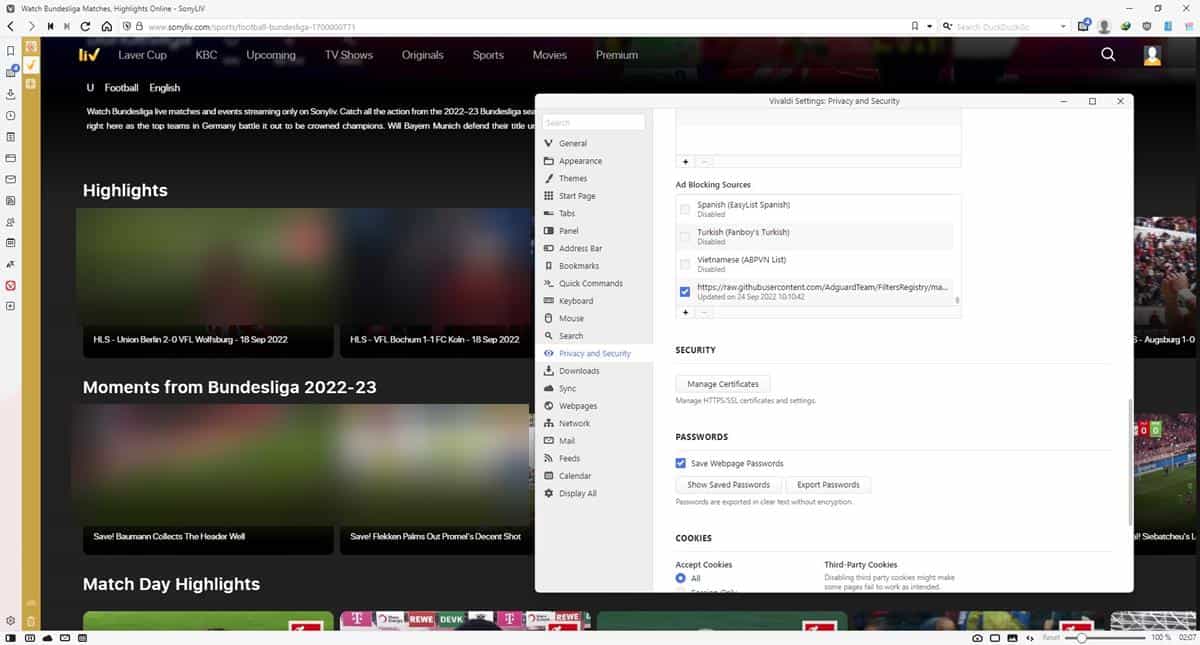Vivaldi has outlined the future of its ad blocker, and how it could work when Manifest V3 is enforced. Google says that the changes it brings will protect users from loading remotely-hosted code.

Browser makers like Mozilla, Brave and Vivaldi are concerned about the controversial declarativeNetRequest API, which threatens the future of content blockers on Chrome and Chromium-based browsers, and poses a risk to the privacy and security of users. Mozilla will continue to support Manifest V2 in Firefox, as will Vivaldi.
The Manifest V3 Conundrum
An article published on Vivaldi's blog points out that Manifest V2 is not being deprecated completely, only the ability to block requests from webRequest is. V2 will be available for enterprise users until June 2023. The developer says that the underlying code for webRequest will remain intact until that time, and since declarativeNetRequest is built on top of it, Vivaldi's native ad blocker written in C++, should be able to use the Chromium API and on paper, continue to function when Manifest V3 becomes the norm.

If Vivaldi continues to support Manifest V2, existing add-ons including ad blockers will remain unaffected, won't they? The developer says this largely depends on how Manifest V3 develops, and also on which the APIs that the extensions use. The browser maker plans to remove whatever restrictions Google adds, but does admit it could be a difficult ride. In the event that Vivaldi is forced to drop support for Manifest V2, users may have no choice, but to rely on the browser's built-in ad-blocker.
AdGuard recently released a Manifest V3 compatible content blocker, but the extension hasn't had an impressive start. Raymond Hill, the developer of uBlock Origin, released an add-on called uBlock Lite (formerly uBO Minus), it seems promising, but it's not as good as the original version. The extensions are crippled by the changes in Manifest V3, access to the APIs, and artificial limitations. It might take a while for these extensions to evolve.
Limitations in Vivaldi's ad blocker
I like Vivaldi and use it regularly (explained below), it is not my intention to portray it as a bad browser, but I can't shy away from its limitations. I use Vivaldi (and Safari on my Mac) to watch football on Sonyliv.com, because the site's video player doesn't work in Firefox, even though the latter has absolutely no issues with videos on YouTube, Amazon Prime, Disney+ Hotstar, etc.

There is an issue with accessing the site through Vivaldi, Sony Liv detects the native ad blocker, and prevents me from accessing the website without disabling the feature. This is not a huge deal for me, as I can subscribe to the AdGuard annoyances filter to bypass the restriction. You can find the AdGuard filters here, and uBlock Origin filters on this page.

But, I can't say the same for other websites that detect ad blockers, they may not be supported by filter lists, you would need to report them to the maintainers, and wait for the site to be added to the list. Or you could block the anti ad blockers by adding custom rules. This isn't easy, as Vivaldi doesn't have a custom block rule editor, you will have to create a text file with your rules in it, and import it like a filter. These steps might make it an uphill task for the average user. The easier and more effective fix is to install a proper content blocker like uBlock Origin.
Ad banners and video ads aren't the only annoyances on the internet, many websites have custom sidebars, video players, chat boxes, persistent banners that appear while you scroll pages, pop-ups and overlays that prevent you from clicking without subscribing or entering your email address, etc. uBlock Origin's element zapper and element picker are useful for blocking these, Vivaldi's ad blocker lacks such cosmetic filtering aka element blocking. Advanced features like Javascript blocking, web logger, are not available in the browser's built-in blocker.
There is another problem that could affect Chrome extensions. At the beginning of 2022, Google stopped accepting Manifest V2 extensions on the Chrome Web Store, and announced that it will remove all Manifest V2 add-ons from the store in 2023. This will result in the removal of content blockers such as uBlock Origin, so users may not be able to install or update the extension from the Web Store.
Vivaldi's users rely on the web store for installing extensions, so this will affect them directly. If Vivaldi continues to support Manifest V2 in 2023, it will need to provide users with an alternative way to install V2 extensions. The only solution, besides sideloading the browser plugin (needs to be updated manually), would be to introduce a Vivaldi Store to host extensions, something which the developers say could not be an easy task, and would require some effort and willingness from add-on maintainers. The same will apply to Brave Browser, though one could argue that its built-in content blocker is better.
Personally, I feel that uBlock Origin cannot be replaced. Vivaldi's ad blocker is good, but there is plenty of room for improvement. It really needs an element blocker for cosmetic filtering, and a custom rule editor among other things, otherwise it risks losing on users who may want to migrate away from Chrome next year.
Would you use Vivaldi's ad blocker instead of uBlock Origin?
Thank you for being a Ghacks reader. The post Vivaldi says its ad blocker will continue working even after changes in Manifest V3 appeared first on gHacks Technology News.


0 Commentaires